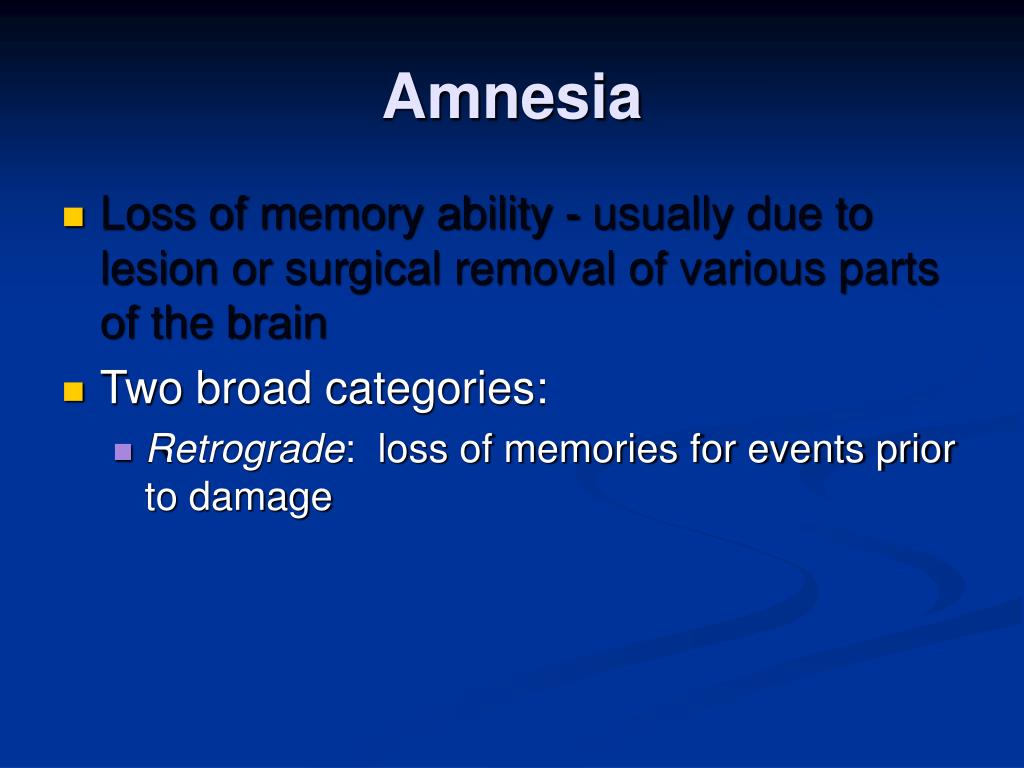

The technical term for this is repression.

Psychologic factors may also cause amnesia a shocking or unacceptable situation may be too painful to remember, and the situation is then retained only in the subconscious mind. Amnesia is usually the result of physical damage to areas of the brain from injury, disease, or alcoholism. While very frightening for the patient, transient global amnesia generally has an excellent prognosis for recovery. In severe attacks, a person is completely disoriented and may experience retrograde amnesia that extends back several years. Attacks can be as brief as 30-60 minutes or can last up to 24 hours. (A transient ischemic attack, sometimes called "a small stroke," occurs when a blockage in an artery temporarily blocks off blood supply to part of the brain.) A victim experiences sudden confusion and forgetfulness. This type of amnesia has no consistently identifiable cause, but researchers have suggested that migraines or transient ischemic attacks may be the trigger. In some ways, this form of amnesia is the opposite of anterograde amnesia: the victim can recall events that occurred after a trauma, but cannot remember previously familiar information or the events preceding the trauma. Recent experiences and short-term memory disappear, but victims can recall events prior to the trauma with clarity.

This form of amnesia follows brain trauma and is characterized by the inability to remember new information.


 0 kommentar(er)
0 kommentar(er)
